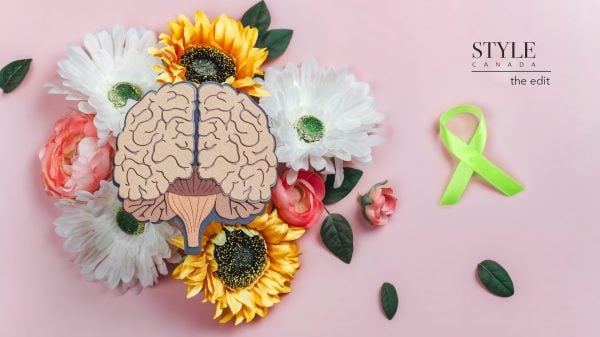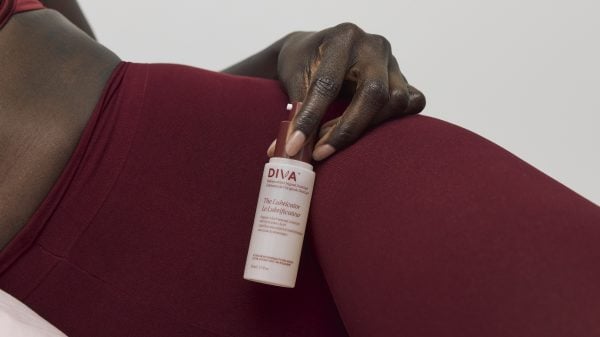On this week’s episode of Let’s Talk About…, Elise and co-host Sarah Joseph sit down with Shelley Whitehouse to talk all about psychotherapy.
Guest Shelley White House, who’s a registered psychotherapist in Richmond Hill. Shelly specializes in trauma-based therapy, emotionally focused therapy, and attachment-based therapy.
Co-host Sarah is a certified emotional intelligence coach whose mission is to help you get comfortable with your emotions and master them to live a more purposeful life. She understands how our lack of emotional management can impact the longevity of our relationships and can inspire our emotional healing by plugging into our most powerful tool, the Mind. Her philosophy is that our emotions show up in every aspect of our lives and it’s your right to learn how to manage them effectively to your advantage.
Elise, Sarah, and Shelley talk about psychotherapy, finding the right therapist for you, the benefits of therapy, and the difference between coaching and therapy
“When you’re sitting with your therapist if you feel calm and relaxed and you feel comfortable being in your body and you can really feel this sensation of being really seen…you’re gonna feel comfortable to stay there.” Shelly tells Elise and Sarah on Let’s Talk About.
Check out out show’s full transcript below.
Season 3 Episode 16
[00:00:00] Elise: Hi everyone, and welcome. This week is our last episode in our emotional intelligence series, and as we come to the end of May and Mental Health Awareness Month, we’re talking all about breaking the stigma around mental health today joining me, I have our co-host, Sarah Joseph, emotional intelligence coach. Hi Sarah.
[00:00:17] Sarah: Hi. Hello, how are you today?
[00:00:19] Elise: I’m good, thanks. How are you?
[00:00:20] Sarah: I’m good. I’m super excited for today’s episode, but I think I say that about every episode. Well, today.
[00:00:27] Elise: Today we have a guest joining us. So we have Shelly White House, who’s a registered psychotherapist in Richmond Hill.
Shelly specializes in trauma-based therapy, emotionally focused therapy, and attachment based therapy. Shelly, thanks so much for joining us.
[00:00:41] Shelley: Thank you. Thanks for having me.
[00:00:43] Elise: Yeah, we’re excited to have to have a guest talk about this really, um, I think important topic. We didn’t want the month of May to go by without directly addressing mental health.
I think, you know, this whole series about emotional intelligence has kind of, to me anyway, been about stronger mental health and stronger emotional health. But Shelly, can you tell us a little bit about. How, and I don’t think you and I even talked about this in the preamble here, but tell us a little bit about how you got into this field.
[00:01:11] Shelley: Oh, sure. Um, wow. It, I feel like I was trying to get into this field my whole life, but I kept doing like careers that were helping careers and I enjoyed them, but I knew it wasn’t the thing. Um, and then, uh, it’s kind of fluky. I came across, I met somebody who, I met them one time, one coffee that was done, but they introduced me to this school.
And, at that time I had wanted to go into the schools and work with, uh, teens on their emotional health, their wellness, their physical health cuz I used to be a personal trainer and I kind of wanted to tie it all together. And I spoke with a, you know, a close colleague, and they said, you know, you need a degree to do that.
Like to get into the school system to do that, you’re gonna need a degree. And I was like, oh, okay. So I happened to meet somebody who told me about this college, and when I went on to the website, it had, it was like, I had been there many, many, many times before. It just was so familiar. But I had never been there before.
And, um, this was a psycho psychotherapy program. And that was it. Like from then on it is just, it clicked. I was like, this is the thing I’ve been waiting for. Um, I registered to start school right away and it’s everything else, and I just loved it.
[00:02:26] Elise: I love that.
[00:02:26] Sarah: I love that.
[00:02:27] Elise: Yeah. I like though too, we have, you know, we sometimes take a different route to getting to our career or, and who knows, maybe there’s, you know, what’s to come after this.
I always think that too, right? Yeah. Yeah. There’s a lot in the
[00:02:40] Shelley: decade.
[00:02:41] Sarah: You just never know where the future will take you. Right, and I thought that it felt like just a calling, like a purpose. Like you, you landed on the page and you were like, wow, like this is it.
[00:02:50] Shelley: There were butterflies on the page, which to me signifies transformation.
So, uh, I, there was just so many, like all the doors and windows opened, you know, on the way. So it was fantastic. Very cool.
[00:03:01] Elise: A good, a good place to start is what is psychotherapy? That are probably just cuz the whole idea here is to break down that stigma of mental health. So let’s start with like the building block basics of what it is.
[00:03:14] Shelley: Yeah. So I like to describe psychotherapy, um, along with like also psychology and psychiatry cuz a lot of people are, they have no idea what is the difference, right? So when I explain it, I like to talk about how psychotherapy is the part of mental health field where we work on. Hold public patterns, patterns, traumas.
We actually, we can go back. We don’t have to go back. There’s so many different modalities to use, but we’re actually working on healing the core issue. Whereas, psychology is more about diagnosis, like assessment and diagnosis. They, they do do some psychotherapy, but they’re more about assessment and diagnosis of, um, learning disabilities, uh, personality disorders, that sort of thing.
And then psychiatry is where they do all assessments and medication management. So they’re the doctors that prescribe the medication and they’re the only ones who can prescribe the medication. Um, even some doctors can’t prescribe certain mental health medications unless it’s referred by a psychiatrist.
So I look at psychotherapy as the naturopath of the mental health field. So we go in, we help the client, kind of peel back those layers of their onion, um, heal. And ship those core beliefs, heal the trauma, but we do it naturally through, uh, talk therapy or, you know, uh, many different types of modalities.
But all through talk in some way. Uh, one of us is talking at all the time, at some point. Um, So that’s kind of, to me, the difference between, yeah,
[00:04:50] Elise: I’ve never heard of someone explain it that way. The natural. So I really, I like that analogy. Is there, like, if someone’s just wanting to explore this field, is there somewhere that they should start?
Like is there one or does it depend on the person?
[00:05:07] Shelley: Uh, to explore the field. In which way?
[00:05:09] Elise: So let’s say I have an issue that I want to talk through, or I just wanna improve my mental health. Do I start with psychotherapy? Do I psychotherapy psychology, or does it mat, like, does it, is it dependent on the future?
[00:05:20] Shelley: Uh, generally psychotherapy. Okay. Generally, um, because the thing is psychologists or, or how. These huge, massive waiting lists, and so do psychiatrists for assessment, and they just often will refer back to a psychotherapist. Okay. Some psychologists do psychotherapy, but it’s, it’s more rare nowadays. Okay.
[00:05:41] Elise: Very interesting.
[00:05:41] Sarah: I know when I started my own journey, it was through Shelly actually. We’ve been working together for, I wanna say the last two to three years, I believe. Um, and I started my journey with psychotherapy as well, and that’s kind of how one thing led to another. But, um, I’m glad I started.
Honestly, I, all I did was I, I did a Google search and Shelly happened to come up. I really resonated with just her website, her picture, and then that’s kind of where. I sent an email out and one thing led to another. Um, okay. And it, it’s been great ever since healing. Great. Uh, she’s a great psychotherapist.
I, I would say, uh, and she does a whole bunch of other things like reiki as well, and, meditation and it’s, it’s been wonderful. So I think if anyone’s looking to start Psychotherapy’s probably the best route. And, you know, bridging the gaps from there, um, would be best.
[00:06:32] Elise: And I know too, it’s very much like when you’re looking for a therapist, very much like if you click with someone, right?
Yeah. And so it can be like finding your partner in that. Can you, you know, can you talk a little bit about, and is it, I don’t know, is it just a feeling if you know someone’s a good fit for me and my case it was probably part of feeling, but also like I felt like they were talking my language. I felt like they were, I, I preferred having more of like, tactical things to do and having this science behind why that was happening.
Like, so is there, processes or steps to ask if this person is a good fit for you, like Sarah. It sounds like in your instance you like went to your, their website, you saw that they had a same maybe philosophy on life, but is there, is there anything for someone that’s looking for someone to work with that you think they sh some key points I guess to give, because I will say there’s like been two that I didn’t match with at all.
Yeah. Um, and I went through maybe a session or two and I’m like, I’m getting nowhere here. Like, this is just not, and I don’t know if there’s a way to get ahead of that, or if you do kind of have to go through that session.
[00:07:48] Sarah: I actually wonder what Shelly thinks about that, cuz I’m sure you’ve had clients that have, you know, stayed with you and then maybe moved on.
But how do you, how do you know when it’s the right fit?
[00:07:58] Shelley: Yeah. So I think intuition, right? Um, for me, a colleague of mine uses this phrase when we teach other therapists and she says, if it feels icky, don’t picky. And I think, I think, um, it’s the same when you have, when you’re sitting with a therapist, if you feel calm and relaxed and you feel comfortable being in your body and you can really feel like, this sensation, oh, I just got shivers, this sensation of being like really seen.
Like they get you you know, they’re connecting with you. You feel connected with, and you feel that in your body. I think that’s a felt sense. I think it mostly comes down to a felt sense. Cuz if you don’t feel seen and heard and like they get you and they’re not judging you, which no therapist should do, but I’ve, you know, every people are different.
Um, then you’re gonna feel comfortable to stay there. But if it doesn’t feel good, you’re gonna probably move on. I think that’s the main one.
[00:08:54] Elise: Yeah, I’m thinking back on my experience with it. I think that absolutely made sense. It, the way you described it was perfect because it just felt like there, there was no progress and no, she, it just felt like going through the motions.
Yeah. I guess when it wasn’t a fit, and it’s like, okay, now we’ll do this. Now we’ll talk about this. But when it was the right fit, there was like such a flood of emotion that came out and like just this feeling of like, Things started to fall into place, I guess. Yeah. Yeah. And that maybe not always, maybe always can’t happen on the first session.
Like maybe there’s like an element of giving someone a chance or two, but like in my experience, it more did happen on like the first go round.
[00:09:35] Shelley: Yeah. I think our intuition is the strongest.
[00:09:38] Sarah: I think so too. I think the way I also knew was just kind of like Shelly mentioned being seen, heard, and understood.
So I think that was kind of what I was looking for, just in general. And she hit the nail on the head with our, with our discovery call. Um, and it was very, uh, Very open, and I felt like I could just say what I needed to say and not feel the criticism, not feel judged, not feel like I was wrong for feeling the way that I felt.
And everything kind of fell into place because I felt so hurt and understood. So I think just again, that intuition, but then, Hearing their voice attached to that picture and then sitting in that first session, I think really does get the juices flowing. Um, but I do know I have, I do also have friends who have gone through the psychotherapy experience and they absolutely hated it.
And they, you know, were just paired with therapists that they, uh, they didn’t get along with, they didn’t like, and they completely fell off of therapy in general. So I was actually going to ask you, What’s your experience when it comes to people never considering therapy and why do you think that is?
[00:10:47] Shelley: Why they wouldn’t consider therapy?
Yeah. Um, well, a lot of people grew up with, um, Messaging that if you are, you only go to a therapist if you’re crazy, right? Like, you have to be severely mentally ill to go to a therapist and therefore if you even bring to your parents or you even bring to a lot of teens wanna go, but they’re afraid to bring it up.
Um, that their parents might think that they’re crazy or that they friends might think that they’re crazy. I, I do think that that’s beginning to shift. Quite a lot actually. Um, it’s like everyone’s kind of in therapy and everyone knows it now. Yeah, my therapist. What do you mean you don’t have a therapist?
Like a lot of teens will be like, my friend doesn’t have a therapist, and none of us can understand why they don’t have therapist. So I think it’s definitely becoming more. Open, but in the begin, like a little while ago, a couple years ago, and before that it was kind of like you had to be severely ill to go to a therapist.
Um, and that’s just not the case anymore. But the other thing is affordability, right? Like, sometimes people can’t afford, uh, the expense of, of therapy, just like they can’t afford the expense of. You know, other, things that they need in their life. But, um, so there, there are, um, there is a network called the Affordable Therapy Network, and they actually offer low rate therapy and sliding scale.
So that’s kind of, uh, one of the resources people can go to when money, you know, when the cost is an issue, right? Yeah.
[00:12:12] Elise: That’s great cuz it, it, it can be costly. Right? And we don’t all have coverage necessarily. So I could see that being a big barrier to, to entry. Um, you mentioned that stigma around it and kind of do I do agree.
I think that’s gone away to some extent. Um. What are some of the, so we know maybe some of the reasons that people, any other reasons that people don’t consider it or those kind of, the bigger, the two biggest,
[00:12:38] Shelley: um, the, I think that a lot of people have, well, I don’t wanna say a lot, but I think the people that are being held back by this, they feel like if they ask for help, like they could be very much people pleasing, type personalities, perfectionists, and that if they ask for help, it means that they’re worthless, useless, um, there’s something wrong with them.
Right, so that could be something that holds people back as well.
[00:13:03] Sarah: I could definitely resonate with the feeling like something’s wrong with you. Yeah. Um, I know before starting, I definitely went into the mindset of if I need help, then that means something’s wrong with me. And then going through therapy, I ended up noticing it that nothing was wrong with me, it was just I collected a lot of trauma and hurt feelings based on what happened to me, right? And from there it kind of, one thing led to another and you open up, you heal, you move past it, you grow. You find tools that you know, help you manage certain types of emotion and stress and. It honestly does change your life and your personality kind of changes as you change with therapy.
It’s very funny. I feel like I was more of a closed off person before starting therapy and I didn’t really open up and I didn’t have very many people. And then after therapy, at least with Shelly, um, Definitely way more open, way more vocal, way more, you know, outgoing and making new friends and trying new things.
So no more perfectionism, which is great. No more of that fear of failure, kind of going into things head on and now it’s something that I teach. So I think it’s very, very interesting how therapy can sometimes come full circle for some people.
[00:14:14] Shelley: Totally.
[00:14:16] Elise: Those are some great benefits. Sarah, that that you mentioned, Shelley.
Are there other benefits that you’ve seen some of your clients receive from therapy?
[00:14:24] Shelley: Oh my gosh. Um, so many like boundary setting, huge, hugely important. Yeah. Um, developing assertiveness, right? Like being able to say no, or, you know, um, prioritize yourself. Right? Um, those are just some of the, you know, my favorites.
And obviously anxiety, right? Like reducing anxiety, increasing your mood if you have a low mood, um, and self-esteem, like just building up, the getting to know who you really are. When we remove all of the, not all of them, when we begin to remove the pain and the messaging that we had as a child, um, generally it, it just changes who we are.
And like Sarah mentioned, the personality change. It’s usually for a good, it’s usually for good, right? Usually for positive. Um, but. Those are my, those are my favorite skills development, right? Communication is a huge, most people struggle with communication, um, but learning those skills is literally life changing.
And that’s one of my favorite things to do is teach communication. And I’ll teach a specific thing and someone will come back and they’ll be like, Oh my God, my marriage is literally, uh, like completely different in a week just based on using these communication skills and we’re really connecting and my husband’s speaking kinder to me, or my wife is speaking kinder to me.
And, uh, it’s just amazing to hear that.
[00:15:45] Elise: Wow, a week turnaround. You’re, you’re good
[00:15:52] Shelley: skills go a long way.
[00:15:55] Elise: Can you ta touch on a little bit of, um, yeah. We talked about a little bit some of the benefits, but also some people we mentioned a little earlier maybe not having a fit. Yeah. Why? Why do you see some people that are maybe coming to therapy but then they’re quitting? Is it for those reasons that you mentioned, like they don’t feel like they’re perfect or doing it right, or is that why, or is there some other,
[00:16:19] Shelley: so it happens more rarely, but it has happened. I’ve noticed where, you know, as we begin healing, we, I like to envision us as a big onion, right? And we peel back a layer of onion and then we peel back another layer and, oh, there’s difficult pain there. And at that difficult pain part, many people can stick through it and get to the next layer.
But some people they’re struggling with getting through that layer. You know, they’re covering up their pain with, alcohol, affairs, gambling weed, right? And they’re covering that up because they don’t wanna touch it. So they’re trying to, um, get out of how they’re feeling inside by distracting themselves with an outside, distraction right.
Of, of any kind. Um, which is an addiction in, in a way, if it’s affecting their life. And they don’t wanna give, they don’t wanna touch that pain. So I would, I would say, other than what we already talked about, the main reason why someone, and as long as there’s a fit, like if it’s not a good fit, that’s, you know, a big deal, but it’s, they don’t wanna touch the pain.
They’re not prepared. And so they’ll just ghost, right? They’ll just, Nope. They’ll just ghost and you don’t hear from them. And I always like to do a quick check-in, just checking in, making sure you’re okay. Um, if they suddenly disappear, but usually that’s why it’s not as common. Um, It’s, but it does happen.
And I would say that’s probably the other reason. Main reason.
[00:17:48] Elise: Is there like an end to the therapy journey? Like is there, or, or is it something that we always, always benefit from? Could and then maybe it just gets further in between the sessions or what
[00:18:01] Shelley: Right.
[00:18:02] Elise: What does that look like?
[00:18:03] Shelley: Yeah. So generally, I mean, I remember when I went to school, our professors taught us that, you know, we are supposed to work ourself out of a job with every client.
Right. And that means that we’ve been successful. Mm-hmm. And I, that’s because we wanna support them and help them heal. I find that in therapy, I usually start weekly, with a client. And then we, we keep in touch and discuss like, what do you think you wanna go down to? Two weeks. Okay. Two weeks. Okay. What about three weeks?
And eventually we’ll kind of move down to once a month. Um, and then we’ll chat about, you know, Does once a month, once a month feel comfortable or do you wanna take, are you good to kind to take a break and then do check-ins I’ll have people do check-ins and then, you know, five months later there something happened in their life and they’re like, I really, this is kind of open this thing for me and I really wanna work on it.
And we’re back to weekly again. So it just depends. We’re supposed to do closure, a psychotherapist, and that would be our goal to do that eventually. But it rarely happens because,
[00:19:01] Elise: life happens.
[00:19:02] Shelley: Life happens. And plus the, you know, they love people who love having that check-in. I see my own therapist monthly.
Um, I’ve had probably like 350 hours of therapy. Um, but I still see her monthly and sometimes I show up, I’m like, I have no idea what we’re gonna talk about today. Um, but we talk the whole time and I always come away with something that’s helpful. And sometimes it’s also a celebration. Like you don’t have to just go to your therapist when you’re in pain, you can also have a celebration and unpack what you’ve learned, where you’ve come, how well you’re doing in this moment. Right? And a lot of people think you can’t do that. I had a client recently that said, oh, I didn’t have a lot of work to work on today. I had some things to just kind of share.
Are you gonna drop me as a client? I’m like, no, no. This is amazing. This is also part of therapy, like being able to unpack your success and where you’ve come. Right. And we’ve done that. You know, I do that with all of my clients.
[00:19:56] Sarah: Yeah, it, it’s interesting cuz I’ve also had weeks where I’m just like, so many great things happen this week.
I have nothing to talk about that’s painful or complaining and how do we sit through this one, right? And we go through and we just talk about how great it felt to go through those experiences because I think. Part of just therapy and even just coaching in general, learning how to sit through happy emotions as well, and feeling those happy emotions.
And if we’ve been feeling negative emotions for so long, it can be hard to actually embrace positive emotions. And I think that’s something I definitely struggled with. So I love that Shelly brought that up, that it’s also there to celebrate. You don’t just have to talk about, you know, negative things happening in your life.
Like you can talk about all these beautiful things happening. And it kind of again, helps you see that your life is just the ebbs and flows, like it’s just going up and down all the time. And it helps you normalize your life in a weird way. Like it doesn’t always have to go perfectly well, and it, it can have some dips and it can go back up and it can go back down.
But you’re always excelling upward. You’re always moving up. So therapy is a great place where you can kind of explore your life as a whole, and see the ebbs and flows of your emotions. That’s really good.
[00:21:08] Elise: No, that’s really cool. I’ve never heard of it as like, cuz often people don’t think of it to, to go and talk about, you know, the good stuff, I guess.
Mm-hmm. Yeah. Um, so that might make more people, you know, a little willing, start, start the process with good maybe, you know, and, and go from there. What does, so if someone’s, you know, listen to this podcast, they feel ready to kind of, to go to a therapist. What Shelly, does it look like the first or that process of getting started or getting, I don’t know if you call it onboarding, but like
[00:21:40] Shelley: Yeah.
[00:21:41] Elise: Whether it’s first, the research part of finding someone, the initial session, what does that look like?
[00:21:46] Shelley: Right. So when somebody comes and contacts me, I’ll do a consultation call with them. So I’d just like to check in, see what is it that they’re, you know, really wanting to focus on. Uh, let them ask me any questions that they might have.
Um, and then if that’s a client that I feel that I can work with or that I have space for, then we’ll set up their file, book a session. Um, a lot of therapists do intake. On the first session and intake is where we just kind of go into the history of the client and what’s been going on for them and go through going through a whole history.
Um, and I used to do that, but just me personally. I do intake on the second session. The first session, I just want them to show up and unpack. Cause everybody just wants to unpack what they’re holding, right? Like they’re just holding it and they wanna unpack it. I’d like them to be able to just share.
And feel seen and heard, because this is where we begin to build the connection. I don’t wanna just be like shooting questions at them like I’m a robot, right? I wanna connect with them. And then if there is, Like anxiety on board or depression, I want them to leave that first session with a tool or two that they can actually use to begin to regulate their nervous system from like a physiological point of view right away.
They can take that tool out and begin to use it right away. Um, and then second session we go through intake and then we go from there. And that’s kind of how I, uh, The beginning with them
[00:23:09] Elise: Yeah, no, that’s helpful. I think just to know kind of what to expect, I guess, in the hundred percent first couple sessions.
Anyway. Very cool. Um, though that was really all quite enlightening for me. I don’t know, Sarah, if you had anything else that you wanted to ask Shelly.
[00:23:23] Sarah: Um, actually I had a bit of a, a bit of a statement, so I know that, um, being a EI coach and then also learning about psychotherapy, the, the lines can get kind of muddled in terms of what we just talked about today.
So I just wanted to clarify a little bit about what coaching is versus what therapy is so that people can really get a clear understanding that if coaching is for them, then it’s coaching. But if therapy is for them, then it’s therapy. Um, but. Coaching. Well, therapy as we know now as Shelly explained, is kind of working on the past and really understanding your stories and your messaging and your, your programming, and really getting you to heal those parts of yourself so you can be present in the present moment and really live.
You know, fully wholesomely and imbalance and in alignment with yourself. Um, whereas coaching will take those stories as well, kind of deep dive into, not take a deep dive, but get understanding of what your stories are and then create a future where you can see yourself living your life in the most.
Utmost success that you see yourself living. So it could be, you know, managing that fear of failure or managing, uh, that people pleaser, for example. And learning how to create a plan to get you to where you wanna be. So a coach can help you to get you to the start line and get you crossing over to the finish line.
But a coach will get you tie, uh, a therapist will get you tying your shoes, getting your, getting your hat on, getting your gloves on, and getting ready to go. So, It’s very interesting, the differences between coaching and therapy, and if you know therapy’s for you and wanting to go down the more emotional route and figuring out those deep root causes, then that is for you.
But if you’re looking to build a future and use a little bit of your past and that healing and that story to create a future, then coaching is definitely for you.
[00:25:08] Elise: No, that’s a great point. Cause I kind of, I did wanna ask how the two are linked. Mm-hmm. I guess so. Ladies have wonderful analogies.
[00:25:16] Shelley: Also goal setting, right?
For coaching. Like you really like working on goals and implementing those. That’s really important too.
[00:25:23] Sarah: Yeah.
[00:25:23] Elise: Yeah. Well, thank you both so much for being here with us today. Shelly, can you let everyone know where they can find you?
[00:25:29] Shelley: So my website is, www.shellywhitehouse.com.
Um, so that’s my website. Uh, email [email protected]. And, but you can find most of the information on the website.
[00:25:41] Elise: Awesome.
[00:25:42] Shelley: There’s a bunch of articles there that you can read through as well.
[00:25:45] Elise: Okay, great. And then Sarah, I know we usually share at the end of the episode where everyone can find you if you wanna do that.
[00:25:50] Sarah: You can find me on at my website, it’s www.sarahjosephcertifiedcoaching.com you can also find me on Instagram, TikTok, and Twitter.
[00:25:59] Elise: [00:26:00] Wonderful. Thank you. Well, I hope that we, you know, I think we’ve ended the month and the series on a, on a strong note, just giving some people some tools and some different rules that are out there that could maybe help them on their next part of their journey.
So thank you both, for being here today.











